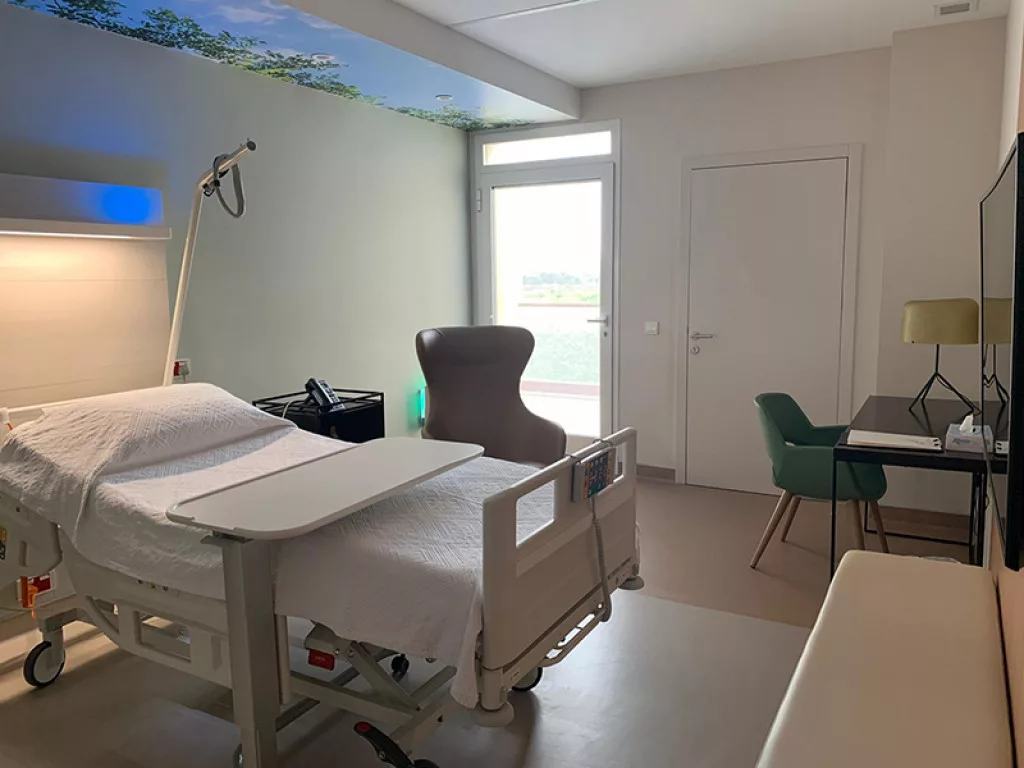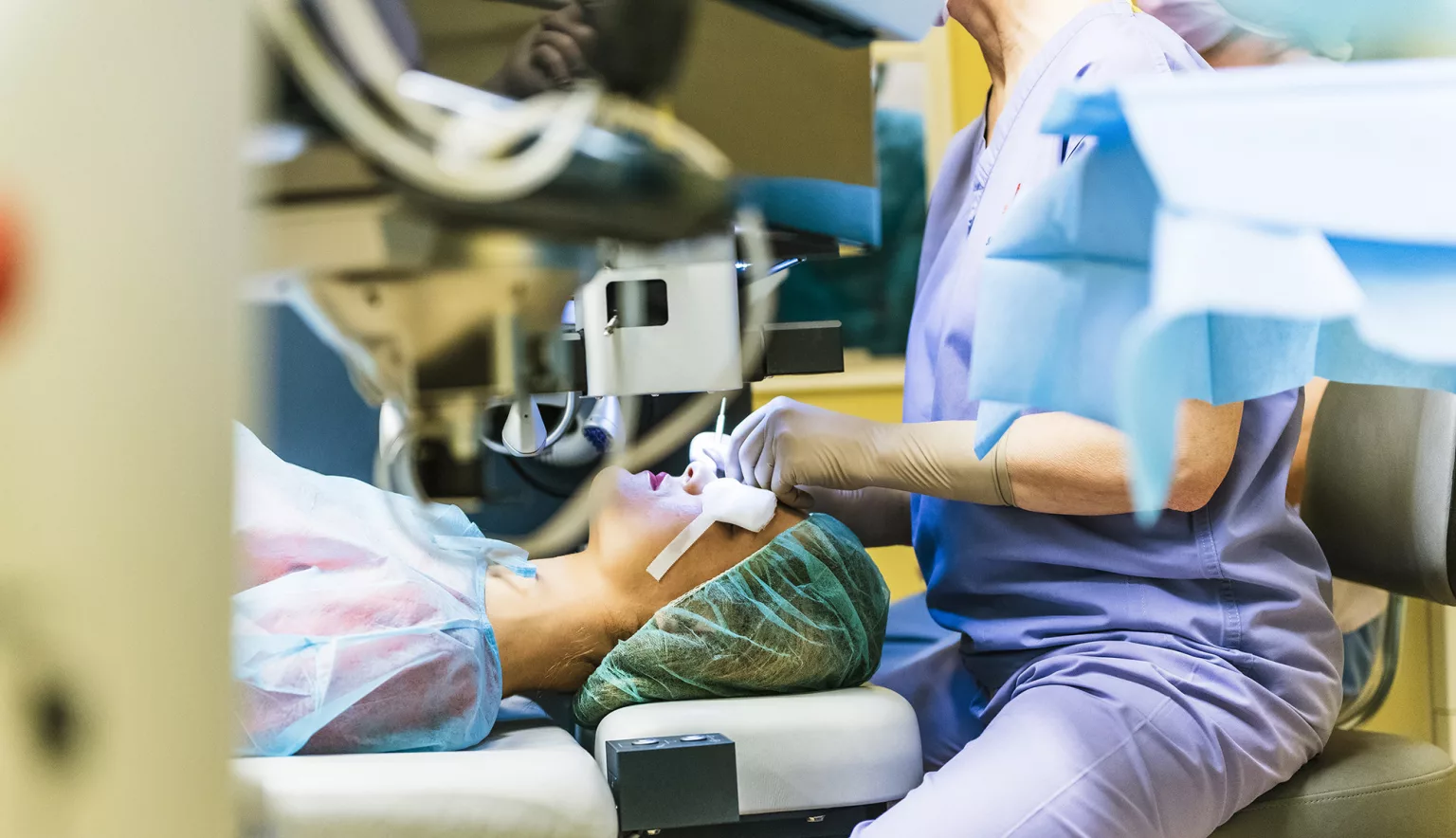As COVID-19 dominates the 2020 agenda, we talk to Saint James Hospital Group about its aims to boost the advancement of medical facilities in Malta and beyond.
A MALTESE MAINSTAY
“Through our large, dedicated team and the new opportunities provided by technology, we are able to contribute to making people’s lives better in a tangible way.”
The Saint James Hospital Group stands at the pinnacle of Maltese private healthcare, providing a broad range of medical, surgical, and allied health specialities in four locations across the country, on top of other core operations in North Africa and Hungary.
As the leading name in the private healthcare sector of Malta, the company has earned a reputation for an incredibly high grade of medical service and 25 years of experience in the industry, employing 450 individuals with a complement of over 300 medical specialists and doctors.
It is through the firm’s pairing of dedicated medical professionals and the latest practical and innovative technology that it achieves a service unmatched in the country. Its services range across the whole spectrum of the medical sphere to ensure the physical and mental wellbeing of all its patients.
For Jean Claude Muscat, orator of the opening words, working within healthcare was somewhat inevitable.
“I was practically born into the industry,” he says. “My father founded Saint James Hospital, at that time known as the Saint James Natural Childbirth Clinic, almost 35 years ago.”
From joining the company at the age of 19, his career has allowed him to contribute to and witness the development of the organisation – now he sits as the Managing Director of Saint James Hospital Group and CEO of Saint James Hospital International.
“In 2003 I spearheaded the company’s largest acquisition to date – the purchase of a competing medical facility, which today is our flagship hospital. In 2006 I took on the internationalisation of the Group and developed the business in Libya and Hungary,” Muscat adds.
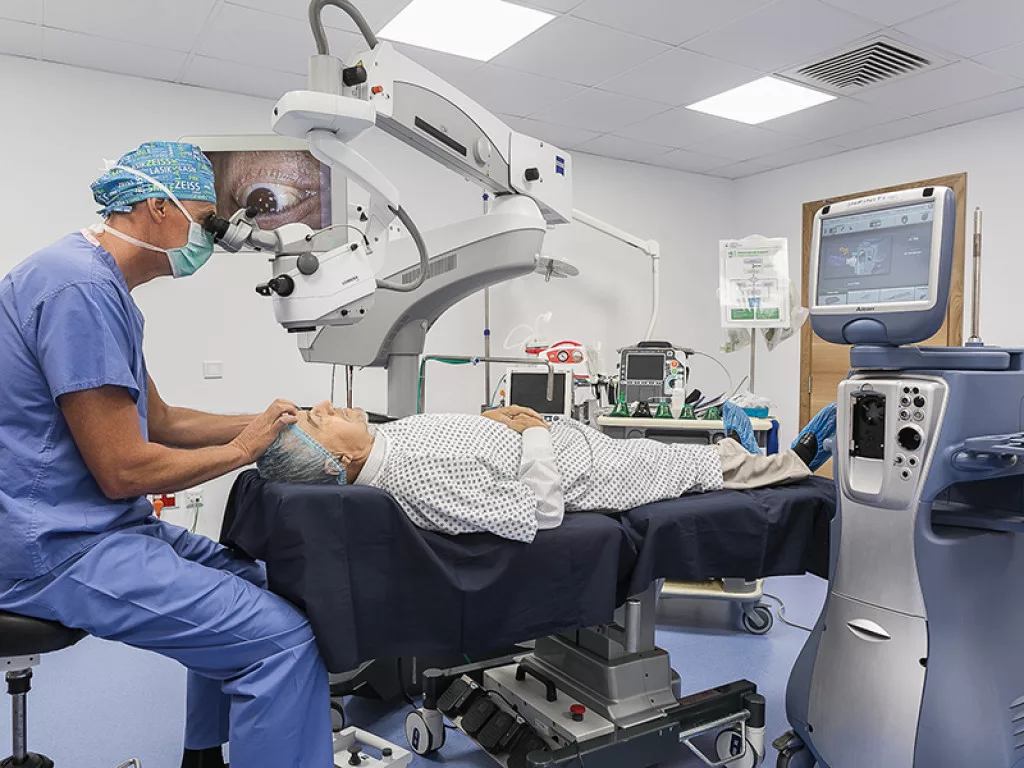
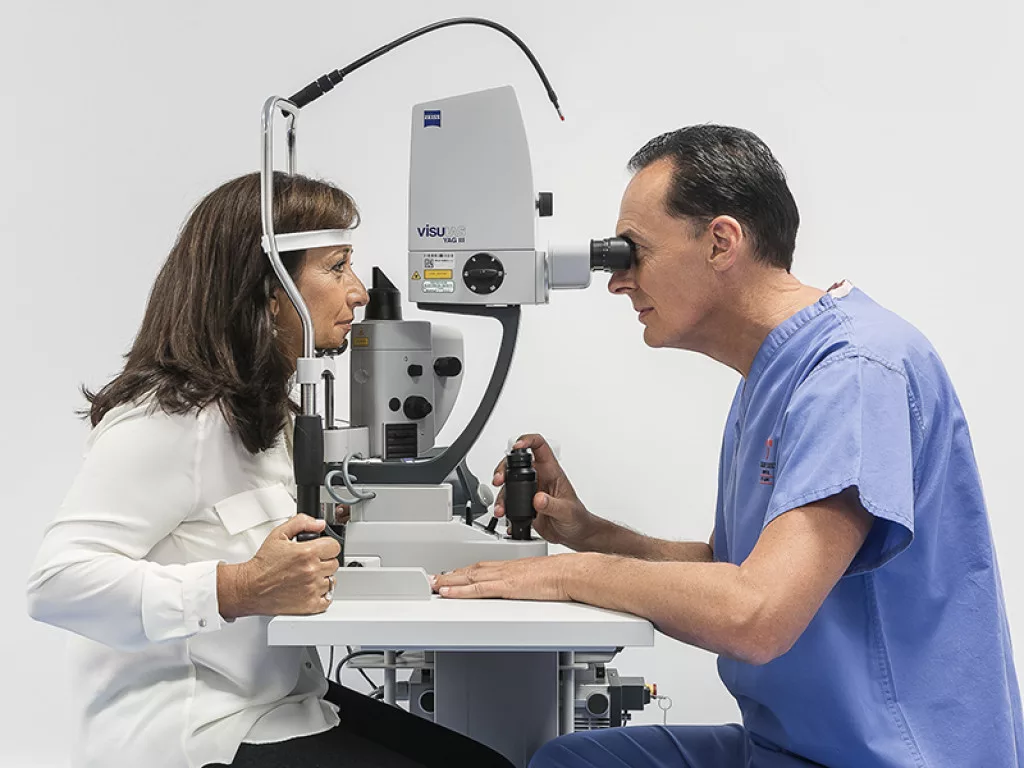
Rising to the challenge
The Maltese healthcare industry is divided into the public and the private sectors. Saint James Hospital Group operates exclusively within the private sphere, and is available to those individuals holding a comprehensive private health insurance policy.
And because of this there are two major obstacles that arise. The first and most obvious is the nature of private healthcare – it costs as opposed to being free to receive and is constantly competing against these free public options. This automatically reduces the market for the Group’s services to around 15 to 20 percent of the population.
Another challenge that emerges is that of Malta’s geography and demographics. The nation of islands and its limited size means that there are less than half a million inhabitants. This automatically brings to light the issue of a capped economic scale for the company, especially one that exists in an economically demanding industry such as healthcare.
“On the positive side this keeps us on our toes and always on the look out to introduce new and unique technologies and services such as artificial intelligence, advanced hospital information systems, non-invasive and minimally invasive surgery techniques, as well as specialisations in specific medical segments such as ophthalmology, amongst others,” Muscat says.
“The limited private market share also pushes us to continue pursuing our investments in overseas markets.”
Indeed, although there are bold plans to expand into overseas markets, it is difficult to deny that the effects of the COVID-19 pandemic have caused disruption within the Maltese healthcare industry.
The pandemic has postponed the development and completion of some planned projects, and over the past year it has pushed the company into an ‘all hands on deck’ approach to dealing with the large increase of necessary anti-coronavirus precautions and new hospital functionality.
“Although we had the advantage of realising the severity of the situation from the way Italy was being hit by the pandemic, we had to be very quick and efficient in setting up processes and procedures whilst determining and implementing new workflows in order to continue providing our services whilst providing a safe environment for our staff and patients alike,” Muscat continues.
“Specific duties and deliverables included creating protocols dealing with infection control processes, documented contingency plans, reorganisation of staff rosters to be able to manage in the event of a shift needing to be quarantined, screening logistics for clients and staff, training of personnel, and information policies to staff and patients, amongst others.”
But the physical and logistical demands were not the only challenges posed by the virus. The firm saw a sudden decrease in revenue – as much as 50 percent due to patients avoiding hospitals unless it was an absolute necessity to visit. On top of this, many of the specialists who deliver the Group’s private healthcare opted out of providing their services to similarly avoid the virus. This situation only began to be relieved from mid-May onwards – following a gradual climb back towards normality.
Thankfully, the disruption and response caused by the sudden emergence of the virus has left Saint James Hospital Group in a state of preparedness and vigilance to face the second wave.
“I am proud to say that all our processes and procedures are very well organised with our members of staff extremely in tune with the required safety protocols, which helped us adapt to the new reality we are living in whilst managing it as well as possible,” Muscat informs us.

“My father founded Saint James Hospital, at that time known as the Saint James Natural Childbirth Clinic, almost 35 years ago”
Jean Claude Muscat
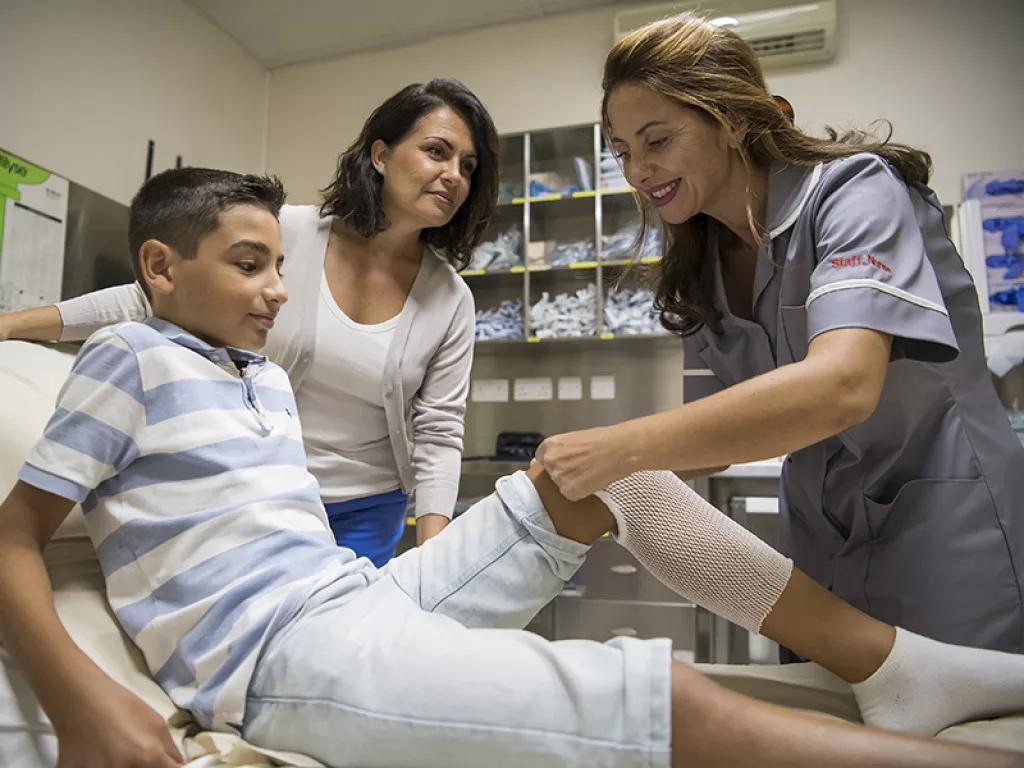
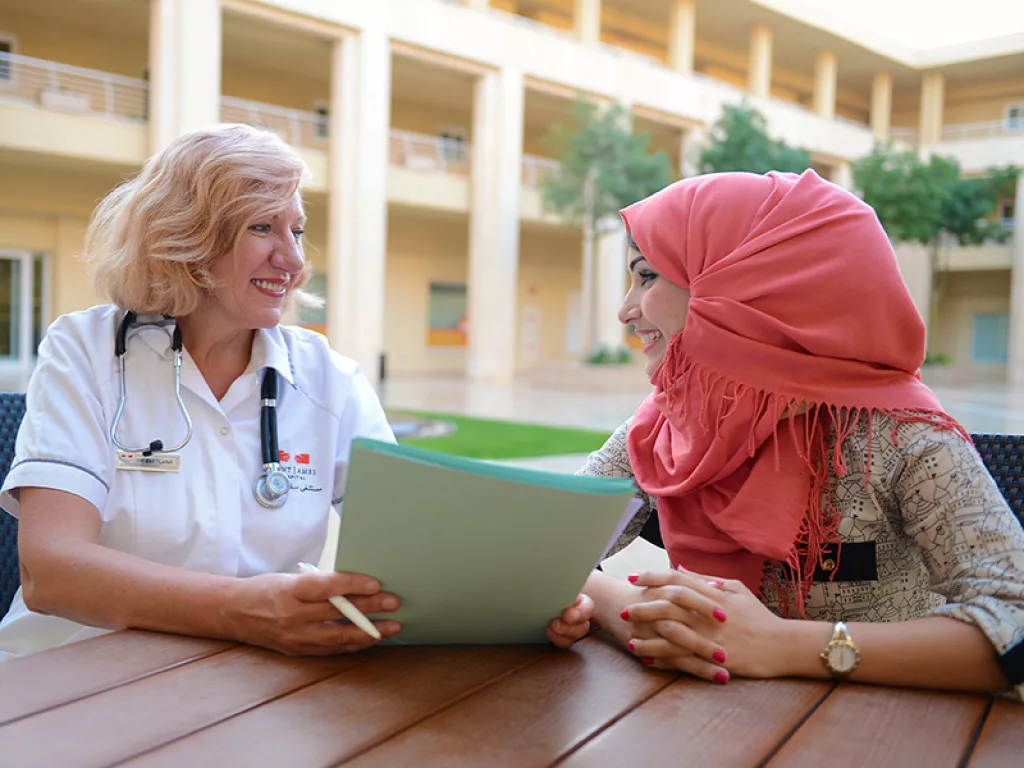
FURTHER AFIELD
Away from Malta, and as Muscat has alluded to, the company is busy building up its presence as a means of overcoming the growth limitations of the domestic private market.
The firm has already breached markets in Libya and Hungary. In the former, the Group has almost completed a 50-bed in-patient hospital despite its construction being stalled due to various obstacles arising.
“We started off with Libya where we opened our first clinic in Tripoli in 2006,” Muscat says. “This turned out to be a very successful initiative until political events within the country slowed down our investment to a near halt.
“Furthermore, before 2016 ended we also opened a separate dental facility and a physiotherapy centre on the outskirts of Tripoli. In 2014 we commenced construction of a brand-new hospital – however, this project had to be halted at almost 70 percent completion due to the unstable realities within the Libyan jurisdiction.”
Before this, the firm decided to expand its services to Hungary, commencing activity here in 2007. The country was developing with regards to its healthcare industry, opportunities, and private facilities. It was later in 2009 that the Group inaugurated a specialised ophthalmic clinic in the centre of Budapest, with another following in Pécs.
As well as investing in bricks and mortar, Muscat and Saint James Hospital Group also recognises that without a brilliantly dedicated team of employees it would not be where it is today.
Recently, recruiting staff has posed its own challenges – sourcing skilled workers in the industry has been difficult, and so the firm has focused on recruiting staff who have the potential for development as well as a dedication to the sector.
“Through our various training programmes and human resources department, we then provide intensive in-house training to our personnel which allows us to encourage, empower and develop skills at the outset and throughout,” Muscat adds. “Training for us is not a one-time opportunity but a continued requirement which is key to ensuring a team of personnel are abreast and in tune with the Group’s vision and mission.”
Muscat also notes that when it comes to employing professional staff, the company makes use of external recruitment agencies if recruitment from afar is required. To this end, a diversified workforce of local and foreign expertise ensures that quality care is delivered consistently across the board.
Partnerships and supply chain relations are also extremely important to the successful operation of medical facilities. It is the reliability and dependability of suppliers providing quality products and solutions, while maintaining ethical standards of practice, that supports the firm in various aspects of its business.
“Supply chain quality and reliability are key for our organisation to be able to maintain the high-quality standards we consistently aim to deliver to our clients,” Muscat says. “This means being able to trace supplies all the way from the moment the goods leave the manufacturer, through the transportation process, storage and until delivery to our stores.
“Today we consider our suppliers as partners and we realise that we are only as good as the team we work with on a daily basis, providing an inter-dependability that guarantees a long term successful relationship for both parties.”
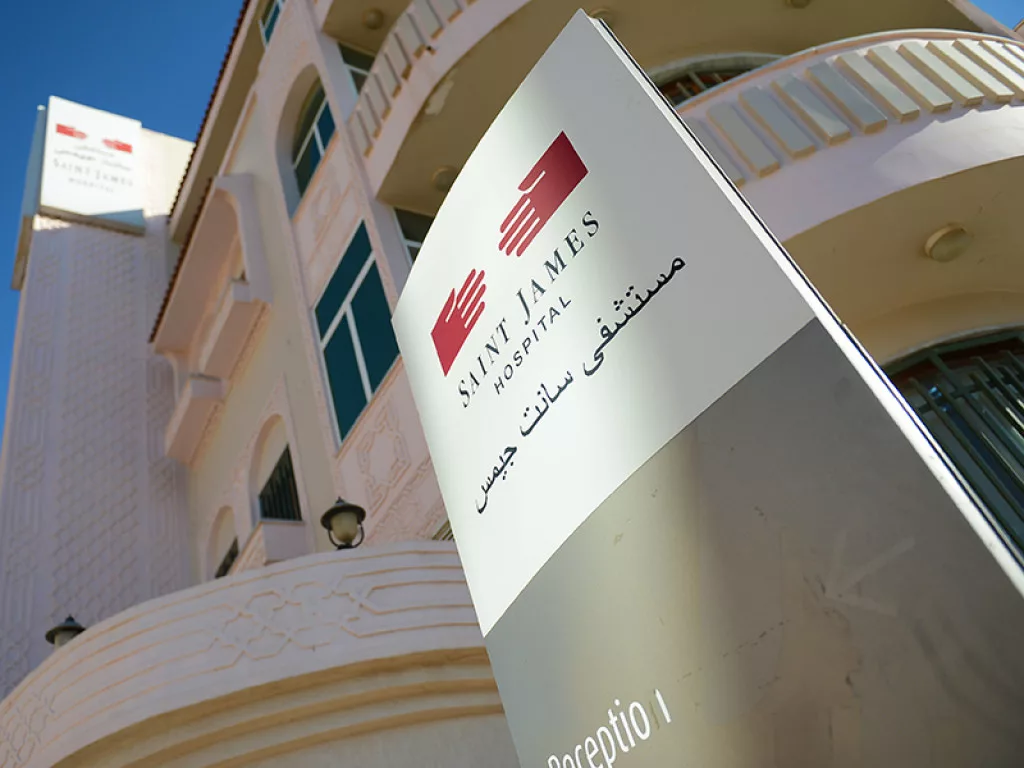
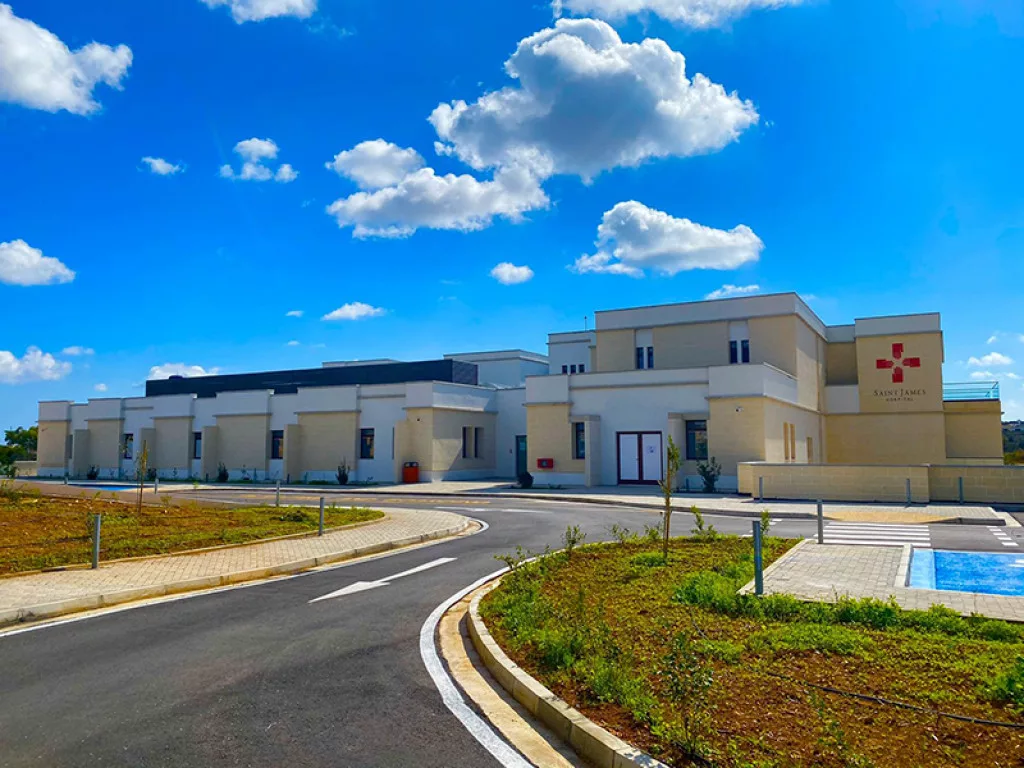
LOOKING AHEAD
Even though COVID-19 has halted some plans, Saint James Hospital Group is aiming to complete a comprehensive restructuring initiative to better manage local and overseas operations. This initiative will see the internal administrative element of the company reconfigured to separate the local and overseas management into different entities.
“This will allow the Group added focus and dedication of resources to both local and foreign operations providing it with an increased focus on market penetration, diversification, and growth,” Muscat explains.
And while the pandemic has forced the company to make its operations leaner, growth is still very much on the table.
“As part of the Group’s drive to continue pursuing its investments in overseas markets we are currently focusing on the African market in order to provide our expertise in the form of management agreements with private hospitals,” he continues.
“Our goal is to continue to develop and provide our brand services overseas by specialising in the management of existing healthcare facilities that are seeking to reach an international standard of care and service, and which will ensure that they stand out from the rest of the competition.”
Back in Malta, the Group continues to invest in innovation as it looks ahead to the future.
For example, it is investing in innovative obesity treatments that are aimed to attract patients from outside of the country.
“We shall also be investing in innovative medical equipment which allows us to perform less invasive oncology interventions and which will also allow previously complex interventions to be carried out in a shorter time with significantly shorter recovery periods,” Muscat says, bringing the conversation to a close.
“Of course, our international presence is of utmost importance too, and it is within this context that we are currently finalising our business plan to invest in a facility in Western Africa, together with the support of our partners.”
